Lancaster Family Smiles Blog
Is Sedation Dentistry Safe? What to Know and How to Prepare for Your Procedure
September 30, 2020

Many of our patients at our DeSoto location come to us with questions surrounding the risks and benefits of sedation dentistry. While there are many reasons sedation may be offered for dentistry practices, all revolve around the comfort and well-being of you – the patient. As such, we are committed to keeping our patients informed of all of their options for any upcoming appointment, as well as helping you make the right decision for yourself by educating you on every aspect. To do this, we offer a variety of sedation options which we explain in detail prior to your appointment.
Exploring Sedation Options with Your Family Dentist
Whether you’re considering sedation for an upcoming major dental procedure, or you’re interested in how it can help with anxiety over a dentistry visit, we’re here to help. As your family dentist, our focus is on providing you with the most caring and comprehensive oral care practices, and that includes ensuring your level of comfort while in our care and also during recovery processes. Sedation often plays a major role in this part.
Before making any decisions surrounding sedation, it’s important to make sure you have all of the information in order to make the right choice for your needs. For starters, there are a few different options in terms of sedation that offer varying levels of comfort and relaxation. These options include prescription medications taken in advance, nitrous oxide treatments, IV sedation, and even a combination of methods is sometimes in order.
The Pros and Cons of Sedation Dentistry
Sedation dentistry is often thought of for major procedures such as tooth extraction, root canals, and other, more intense oral services, but the truth is, it is also often used to help patients who suffer from anxiety prior to any dental appointment. One of the best ways to determine which option is right for you, is by taking a look at the pros and cons of each option.
- Prescription Medication. In some cases, Dr. Gupta can provide a prescription sedative to be taken orally prior to arriving for your appointment. The positives with this allow you to be fully relaxed from the moment you arrive. On the flip side, it will require you to have someone with you to drive you to your appointment as it will impair your ability to drive.
- Nitrous Oxide. Perhaps the most commonly known sedative, nitrous oxide (or laughing gas) is frequently used for its effectiveness (can be administered as long as needed) and for its ability to wear off quickly. On the downside, the calming effects are limited to the time of administration only.
- IV Administration. This version is a sedative given intravenously and is popular for its ability to be adjusted as needed. This method, however, will require patients to have someone drive them home afterwards as the effects do not wear off as soon as others.
Call Us at Our DeSoto Location to See If Sedation Is Right for You
If you’re wondering if sedation dentistry could help get you through your upcoming procedure or help with any anxiety you may be experiencing surrounding dental visits, we’re happy to help walk you through the process. Give us a call or visit our DeSoto location today to find out more!
Academy of General Dentistry Fellowship: Our Commitment to Continuing Education
September 22, 2020
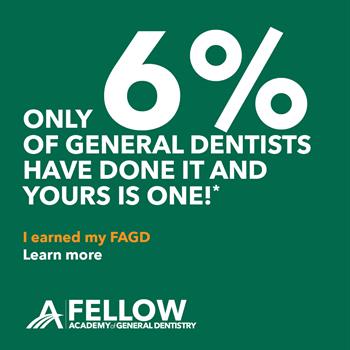
On behalf of our team of professionals at Lancaster Smiles, we would like to congratulate Dr. Gupta on earning her Fellowship accreditation with the Academy of General Dentistry (AGD)! Her latest achievement speaks volumes to the degree of dedication our practice puts forth to continuing our knowledge of dental practices in order to provide our patients with the absolute best possible care available today. Here’s a little bit about what this certification entails and what it means to our patients and practice going forward:
What Is an AGD Fellowship?
Since 1952, the Academy of General Dentistry has been helping dental professionals across the country to continue their education efforts in order to stay abreast of the latest advancements and technology in the field. Dedicated to the advocacy for continual learning, the foundation offers a fellowship program to recognize those professionals who meet their exceptional criteria for professional training and advancement practices. In fact, their criteria are so exceptional, only 6% of general dentistry professionals in the United States and Canada combined, have achieved the coveted fellowship award.
How Is This Achievement Earned?
We are extremely proud to announce that Dr. Gupta’s dedication to continuing education has earned her this fellowship, and a place among the top 6% of dental professionals in the nation. This has been an achievement that demanded years of ongoing educational courses as well as a commitment to meeting the fellowship requirements. In order to earn this exceptional accreditation, your family dentist has undergone vigorous training and AGD testing that has included:
- Completion of 500 hours of course specified continued education (CE) programs and studies. This is a commitment of 500 educational hours beyond her licensing and degree requirements in order to stay current on the most advanced dental breakthroughs of the day.
- Maintain all proper licensing as well as maintain an AGD membership in excellent standing for a minimum of three years prior to the fellowship award.
- Successful completion (passing grade) of the 3-hour long fellowship examination following the 500 hours of CE. This examination is an extensive compilation of the latest dental professional intel of the day and requires a solid grasp of all CE obtained during that time.
What an AGD Fellowship Means to Our Lancaster Smiles Friends and Families
Dr. Gupta and staff are all deeply committed to offering the most comprehensive and caring dental services in the area. It is this commitment that has led to her continued dedication to CE courses and achieving the AGD fellowship as a way to provide our patients with the best, most knowledgeable care. We’d like to extend our congratulations again to Dr. Gupta for this impressive achievement as we let our family of patients know how committed we are to stay at the top of our field – for you, our patients! This latest achievement is just one of the many ways your local family dentist is ensuring you receive top-notch care at every appointment, and now she has the fellowship award to show for this dedication!
Searching for the Best DeSoto Dentist? Give Us a Call Today!
September 16, 2020
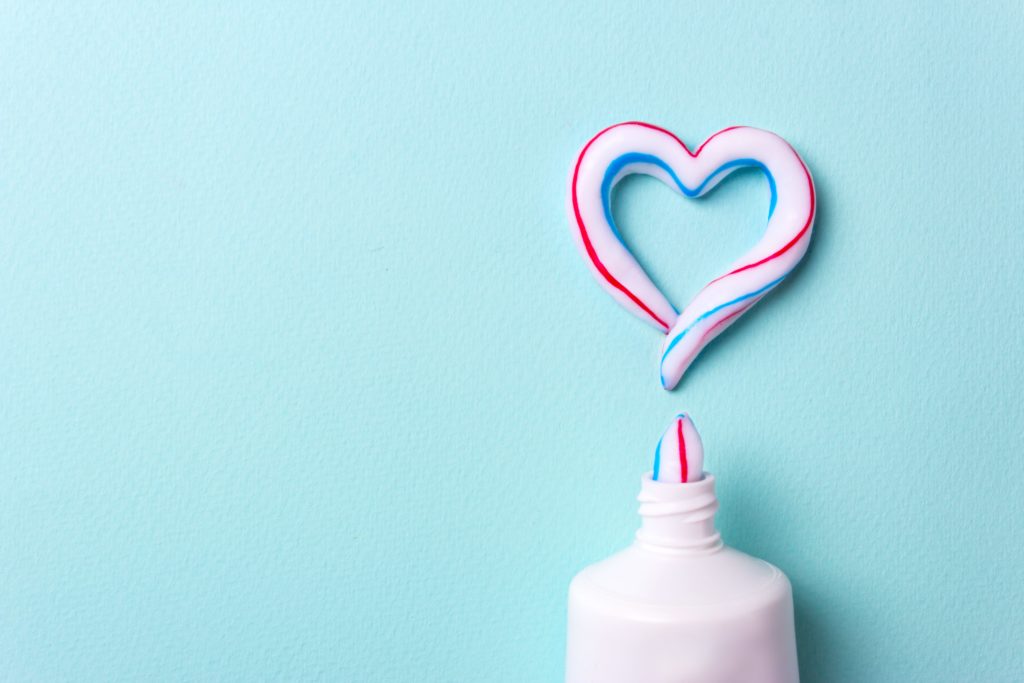
When it comes to the oral health of your family members, it’s important to know you have chosen the best DeSoto dentist to manage their care. For years, Dr. Gupta and staff have been welcoming patients of all ages for the most trusted, caring, and gentle dental procedures around. We take great pride in offering our patients cutting edge technology, highly efficient procedural protocols, and a warm, compassionate approach with each of our clients.
Our Dentist Services in Lancaster
At Lancaster Family Smiles, we understand that in order to provide our patients with the best possible care, we must stay current with all of the latest technological and medical advancements in the field. That’s why we continually strive to offer state of the art procedures and equipment that are specifically designed to both simplify your oral procedures as well as being minimally invasive and aiding with recovery times for more in-depth practices. When it comes to dentist services in Lancaster, you can rest assured, our staff is among the most qualified and trusted group of professionals around!
Our DeSoto Dentist Understands Efficiency
In addition to simplifying complex procedures and improving overall healing and recovery measures, our advanced services and equipment also allow for a highly efficient practice. We understand that your time is quite valuable – that’s why we focus on giving you the best possible care without any unnecessary waiting around. Our goal is to give you a warm welcome as well as a comprehensive and focused professional service, using the latest in cutting edge technology in order to have you back on your way in no time – every time you see us.
Efficiency is more than simply getting you in and out of your appointment in a timely fashion, however. As we said, our staff understands that your time is valuable, so we make sure our availability meets whatever your needs may be. We know missing work or school isn’t always a feasible option. That’s why we offer the same caliber of services to all of our patients, 7 days a week. Our hours of availability ensure we are here for you, whenever you can fit us into your schedule – not the other way around.
Your Most Trusted and Compassionate Choice for Dentist Services
Our highly trained staff members have been focused on providing the best possible dental care in the Lancaster and DeSoto areas for years. We are passionate about what we do and work hard to be the most trusted dental professionals around. Your family’s oral health and comfort is our number one priority, and we strive to be the best in the business because that’s what we want for our own families. It’s because of this that we are deeply proud of our consistent 5-star ratings and glowing reviews by our patients, and we look forward to continuing to offer the highest level of care possible for many years to come!
Tooth or Gum Pain? When to Call for Emergency Dentistry Work

When a dental emergency arises, it is usually quite uncomfortable and immediate attention is recommended in order to not only alleviate the pain, but also avoid any progression to more serious issues. But just what constitutes a dental emergency? How do you know when you should seek emergency dentistry help versus waiting for a regular appointment?
Determining When to Call for Emergency Dentistry Work
Oftentimes, when a patient is experiencing tooth or gum pain, they may find themselves questioning whether or not their situation constitutes a dental emergency or if it is something they can wait out or even treat at home. The fact is, however, if you are experiencing any type of significant tooth or gum pain, that is your body’s way of saying you need treatment. The longer this treatment is put off, the greater the chance of your situation worsening.
Seeking out an emergency dentist Lancaster at the first symptoms of pain or discomfort can be a critical part of correcting the issue before things progress to more serious issues. Leaving something like an abscessed tooth unattended can lead to more severe infections and damage to surrounding tissues and bone structures, for example. If you’re experiencing tooth pain or mouth pain in any manor, don’t wait to seek dental assistance.
Most Common Emergency Dentistry Procedures
While unbearable toothaches can be a very common reason to seek emergency dental work, it’s not the only scenario that qualifies as an emergency. In general, any time you have mouth pain, abnormal bleeding or swelling, or oral damage caused by impact, fall, or other physical blow, it’s a good idea to call your family dentist.
Some of the most common reasons for emergency dentistry work include:
- Severe toothache
- Swollen or painful gums
- Broken or chipped tooth
- Tooth loss from physical altercation or accident
It’s important to note, however, that although these are some of the most common reasons for emergency dentistry, this is not an all-inclusive list. If you are experiencing any form of unmanageable oral pain, it’s important to seek the attention of your dental professional immediately. Delaying professional treatment could only further complicate your situation.
What to Do When You Need Immediate Dental Attention
Whether you’re experiencing a more obvious dental emergency such as a knocked-out tooth, or a milder emergency like an unmanageable toothache, the best plan of action is the same: seek the help of your dental professional. In some instances, this could mean scheduling an appointment for the following day (in the instance of a toothache that’s bearable with over the counter pain medicines). In other cases, the situation cannot wait until the next available appointment and must be dealt with immediately (such as the loss of an adult tooth). Either way, your actions will play a large part in your recovery process, and it is always recommended to contact your dental professional as quickly as possible in order to determine the best way to handle your emergency.
Wisdom Teeth Extraction: What to Expect from Your Upcoming Procedure
August 11, 2020
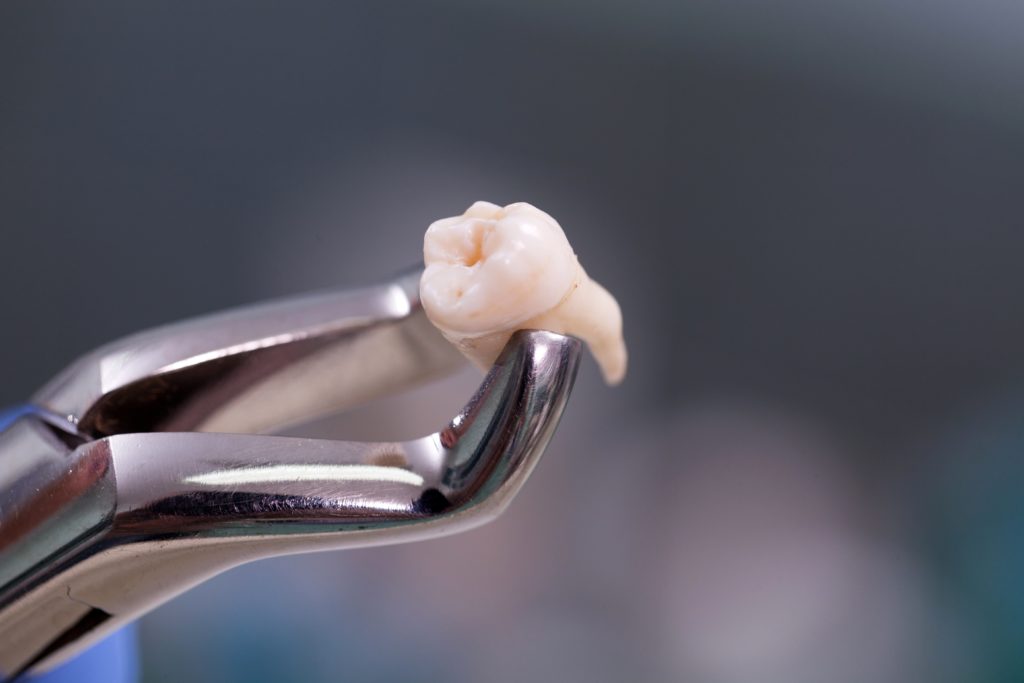
Scheduling a wisdom teeth extraction procedure can bring up many questions and concerns for patients but knowing what to expect and how to prepare can make all the difference. Whether you’ve recently had your wisdom teeth pulled or you’re planning to have the procedure done in the near future, there are certain steps you should take to ensure the process goes as smoothly as possible in order to optimize your recovery period.
Wisdom Teeth Extraction Preparation
Wisdom teeth extraction is one of the most common oral surgeries performed today. In fact, the American Association of Oral and Maxillofacial Surgeons estimate that 90% of people will have at least one of their wisdom teeth pulled, usually between the ages of 17-25. This third set of molars is generally unnecessary and most often causes issues with space in the mouth or crowding of existing teeth, which is why they are so often recommended to be removed.
The best way to prepare for this common procedure is by first discussing the process with your Lancaster dentist. By having an examination and consultation with your dental professional, you’ll have a full picture of not only the positioning of your incoming wisdom teeth, but also, the best understanding of why they need to be removed. Some of the most common reasons include:
- Impacted teeth
- Swelling or pain while eating
- Limited jaw movement
- Teeth crowding
Know the Process
Once you have met with your family dentist Lancaster and determined you need to have a wisdom teeth extraction procedure, the next step in preparation is to know what to expect. Since dental extractions include either a local anesthetic or sedation, patients should discuss each option with their dental professional to determine which method is best for their procedure. Knowing the requirements for preparations such as fasting periods prior to your surgery should also be discussed in advance.
How to Maximize Your Recovery
Your recovery process from having a wisdom tooth extraction performed will vary from person to person. In general, however, most begin to resume somewhat normal activities within a few days. A few tips to keep in mind to help your individual recovery process go as smoothly as possible include:
- Maintain a liquid diet (no straws) for the first full day of recovery.
- Press down with gauze or tea bags to help with initial bleeding gums.
- Keep a soft food only diet for the first week (no foods that require chewing).
- Discuss recommended pain relievers with your dentist.
- Make sure your mouth and surgical site is kept clean, but no excessive brushing until healed.
Your dental professional will be able to give more specific recovery guidelines and tips, so be sure to discuss these with your dentist prior to your surgery in order to be prepared.
Preparing for Dental Implants and Other Major Oral Procedures
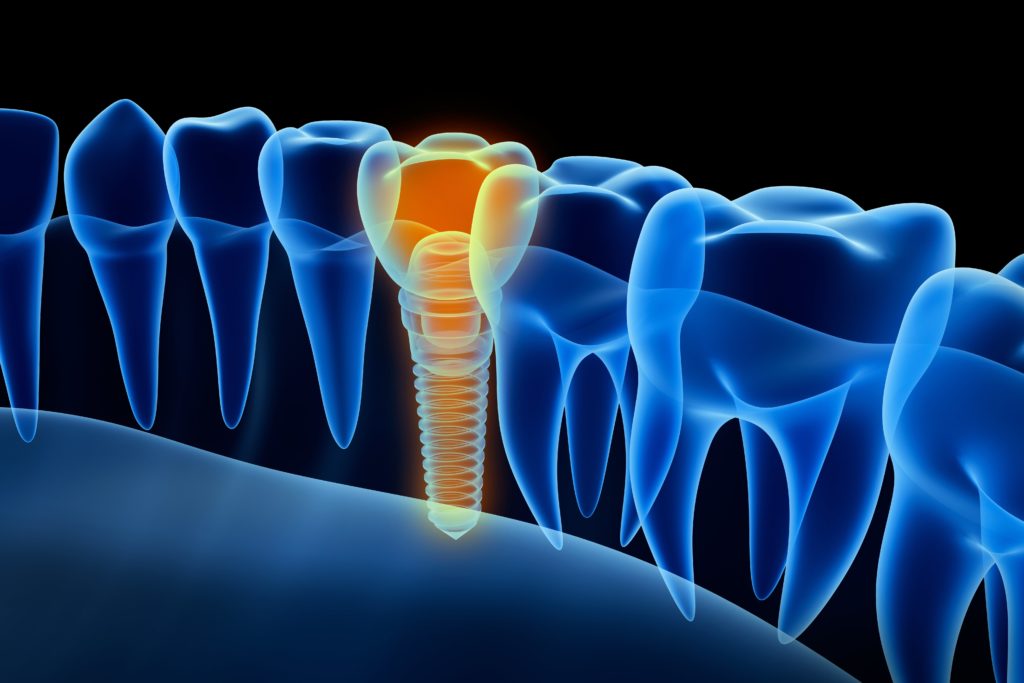
When it comes to dental implants – or any major oral procedures for that matter – the key to a positive experience lies primarily with the preparation. Knowing not just what to expect, but how you should be preparing for your upcoming procedure, will help ensure you don’t hit any roadblocks or recovery obstacles down the road. So, how do you go about making sure you’re properly prepared?
Best Way to Prepare for Dental Implants
The best way to prepare for an upcoming dental procedure involves doing your homework and making some concessions for a successful surgery and recovery process. Exactly what this may entail will likely be different for each patient, so it’s imperative that you know specifically what you need to do in order to have the best possible individual experience. Here are some of the most important steps to take prior to your dental implants Lancaster procedure:
Meet with Your Dental Professional and Do Your Homework
Your first step, if you haven’t done so already, should be to schedule an appointment with your dental professional. When you’re considering a dental implant procedure, there are many variables to consider and you should be sure to have a detailed examination as well as a thorough Q & A session with your Lancaster dentist. Your exam will include detailed information explaining the procedure as well as go through your medical history, testing and results, and outline a comprehensive preparation plan.
Plan for Your Procedure
After discussing the details of your surgery, test results, and medical history with your oral professional, you will begin to prepare for your procedure. For some, this will likely require a round of antibiotics in order to ensure you are safeguarded from infections in much the same as any other form of surgery.
You will also need to ensure you’re prepared financially for your specific procedure. Be sure to contact your insurance prior to scheduling any surgeries or major procedures in order to be informed of your level of personal financial responsibility.
Prepare Yourself Physically for Your Upcoming Procedure
When you get closer to the date of your surgery, there will be physical preparations you need to take as well. These can include fasting for a specified time beforehand (be certain you are aware of your pre-op requirements as directed by your oral professional) but can also include simply planning for your own comfort. Knowing the length of the procedure, it is usually recommended to arrive in clothing that is non-restrictive and loose in order to keep you as comfortable as possible during and after the procedure.
Plan for Your Recovery
In order to have the smoothest recovery process possible, you’ll want to plan ahead as much as you can. This involves scheduling time away from work or activities to allow yourself time to heal. It also means planning for someone to drive you home from your procedure and help with any necessary tasks at home in those first couple of days of recovery and beyond as needed. You’ll also want to stock up on soft foods and plan to keep your schedule light to truly rest and recover after you return home.
5 Tips for the Best Preventive Dentistry Practices
July 11, 2020
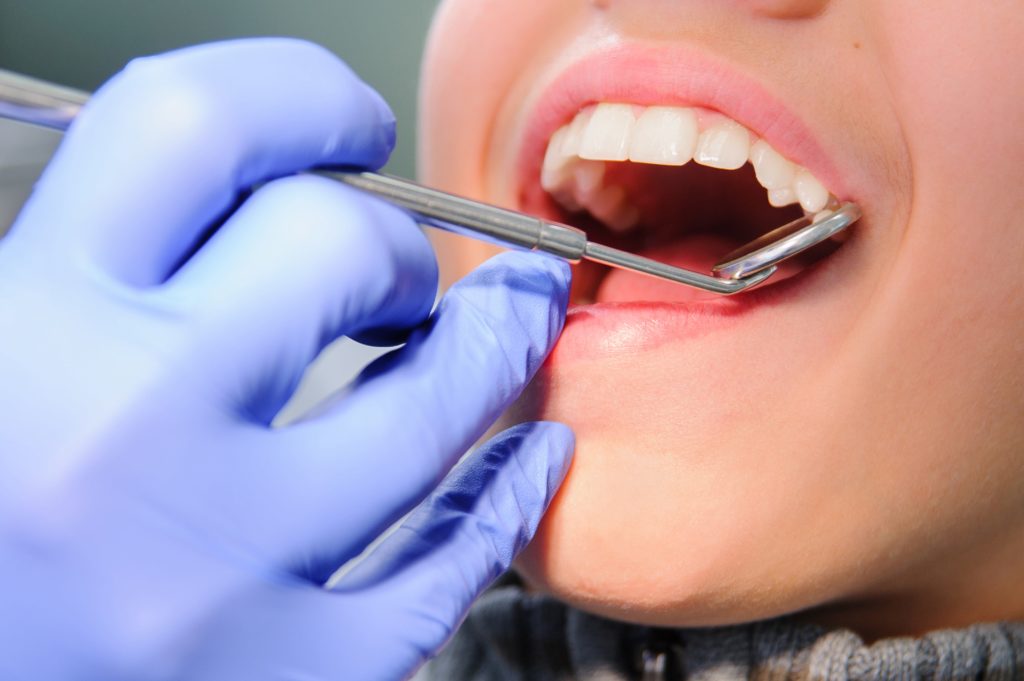
When it comes to oral health, few things are as important as proper preventive dentistry practices. While keeping routine checkup appointments with your Lancaster dentist is a big part of proper care for your teeth, there are a few things you need to be doing at home in order to ensure a healthy mouth. Here is a look at 5 of the most important routines you should be doing to maintain the best possible oral health:
1 – Keep Regular Preventive Dentistry Visits
It should be no surprise, but keeping routine preventive dentistry Lancaster visits is a crucial part of the roadmap to a healthy mouth. The benefits of regular visits are vast but one of the biggest reasons for regular visits is the ability to point out areas of concern before they become much larger issues. Your dental professional will be able to help you outline the best possible regimen for optimal oral health as well as highlight any potential problem areas.
2 – Practice Frequent Brushing Habits
Frequent brushing habits are crucial to maintaining a healthy mouth. While this isn’t new advice, it doesn’t make it any less important. At a bare minimum, it is recommended to brush at least twice a day, with the most important time to brush being right before bed. Nighttime brushing is critical for ensuring all potential buildup and food remnants are removed from the day. It is also recommended, however, that brushing be done in the morning and even after eating throughout the day.
3 – Floss, Floss, Floss
While brushing is a major part of oral care, regular flossing is another habit that needs to be incorporated in order to ensure the best possible dental health. Food particles can easily become lodged in hard to reach areas between our teeth and if left alone, can become harmful plaque or cause serious damage to our teeth and gums. Despite the promises of fancy toothbrush claims, the only way to ensure you’re removing those hard to reach particles is by flossing on a regular basis.
4 – Add a Mouthwash Routine to the Mix
Mouthwash is another way to aid your oral routine by helping to remove tiny particles between teeth. It’s also an excellent way to kill germs and keep your mouth healthy and free from harmful issues like gum disease and infections.
5 – Be Vigilant with Your Diet
Many people don’t realize their diets play a large role in the health of their teeth, but what you eat, and drink is an important part of the process. While you may know to avoid foods and drink that are high in sugars (soda, candy, etc.), there are other items to be aware of as well. Foods that contain a high acidic count such as tomatoes or citric fruits like oranges, can cause issues with your gums and even cause your enamel to break down if left on your teeth without proper cleaning after eating. Check with your dental professional for more details on what foods to add or moderate in your diet for the best possible preventive dentistry practices.
Most Common Restorative Dentistry Practices and How to Plan for Them
June 25, 2020

Restorative dentistry involves any dental procedures used to restore the structure and functionality of your teeth and can involve any number of different treatment options. To determine if you’re in need of restorative dentistry services, it’s important to first understand what these services may be.
What Is Restorative Dentistry?
To put it simply, restorative dentistry involves any dental process which focuses on repairing or restoring damaged oral structures. This can include procedures such as fillings, bridges, and implants among many other services. It’s important to note, however, that restorative dentistry does not include those procedures that are considered cosmetic such as veneers or whitening services.
Most Common Restorative Dentistry Practices
While each case is different, there are a few restorative dentistry procedures that are among the most common services provided to our patients. Knowing whether your prospective procedure falls under restorative or cosmetic can help save you thousands in terms of what’s billed as an elective practice versus restorative. Here is a look at some of the most common restorative dentist Lancaster services treated by our professionals:
- Fillings. Whether they are amalgam (metal) or composite (white), fillings are the most common restorative dentistry we see. These are used to structurally repair and stabilize a tooth that has been deteriorated from cavities and decay.
- Crowns. If a tooth has suffered significant decay and is irreparable via fillings, it may be time for dental crowns (or caps as they are sometimes referred). These restorative processes involve constructing a “cap” that covers the entire tooth down to the gumline in order to protect it from further damage.
- Bridges. Similar to crowns, bridges are used to cover an area that has suffered a tooth extraction. It involves several crowns that are merged together and then bonded to the nearest healthy teeth on either side of the gap in order to “bridge” the missing tooth with a porcelain replacement.
- Bonding. In the case of chipped or broken teeth, bonding is usually the restorative practice utilized for repairs. Bonding is the process of recreating the missing portion of enamel by forming and bonding composite materials to the remaining tooth.
- Implants. When damage is significant, dental implants may be a viable decision. This is the process of replacing existing tooth structures with implanted artificial teeth. These are attached by a metal post that is essentially bonded to your jawbone via a screw-like metal “root.”
How to Prepare for Major Dental Work
Restorative dentistry can provide much needed relief for a variety of oral ailments, but it’s important to be fully informed prior to scheduling any such procedure. Be sure to thoroughly discuss your options with your Lancaster dentist in order to know what to expect and to make the right choice for your situation. You’ll also want to verify any potential procedures are covered by your insurance plans. This will help you avoid any surprise charges down the road from procedures that were deemed elective rather than restorative. Planning for your dentistry services in advance by doing your research and discussing things with your dentist is the best way to keep the pain away – both physically and financially.
5 Signs You May Need Emergency Dentistry Work
June 11, 2020

Patients who experience various dental issues often wonder whether they should seek emergency dentistry work or wait things out to see if the issues will resolve on their own. While some issues may be less urgent than others, there are definitely some important dental warning signs you should never ignore.
(more…)Childhood Cavities: The Most Common Causes of Tooth Decay
May 20, 2020

When it comes to oral hygiene in young children, one of the most common ailments is tooth decay – or cavities. The breakdown of enamel in young teeth occurs much more frequently than in our adult lives, largely due to factors such as improper care and the consumption of detrimental foods and beverages. The best way to combat the issue is by understanding first what the most common causes of tooth decay are and second, how to prevent it from occurring.
(more…)


